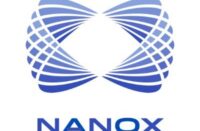Trial Represents an Opportunity to Evaluate a Non-Invasive Treatment Option for Patients with High-Risk Refractory Ventricular Tachycardia
PALO ALTO, Calif., Jan. 19, 2023 /PRNewswire/ — Varian, a Siemens Healthineers company, announced today that the U.S. Food and Drug Administration (FDA) approved an Investigational Device Exemption (IDE) for the pivotal RADIATE-VTTM clinical trial. The RADIATE-VT trial will be the first international, multi-center, randomized controlled trial to evaluate the safety and efficacy of cardiac radioablation (CRA) compared to repeat catheter ablation for patients with high-risk refractory ventricular tachycardia (VT).
Initial approval for the trial has been granted for 80 patients at 10 U.S. sites, with total enrollment planned for 380 patients in up to 30 centers worldwide. Subjects will be randomly assigned to undergo cardiac radioablation with Varian’s CRA system or catheter ablation. The primary objective of the RADIATE-VT clinical trial is to demonstrate that CRA provides a safer experience with equivalent VT control compared to repeat catheter ablation in subjects with high-risk refractory VT.
Varian’s CRA system received FDA Breakthrough Device designation in 2021. The system is designed to support the entire cardiac radioablation workflow, including targeting, planning, and treatment delivery. The CRA system would provide non-invasive delivery of precisely targeted high-dose radiation, enabling ablation across the full thickness of the myocardium. The ability to ablate the full thickness of the myocardium has the potential to improve control of the patient’s VT.
“Patients with refractory VT have limited therapeutic options. Because of this, some institutions have offered patients cardiac radioablation, and these single institution experiences have been reported in the literature. However, to date, there has been no randomized controlled clinical trial to demonstrate the safety and efficacy of this treatment modality compared to current standard of care. We look forward to this landmark clinical trial, which may prove that CRA is as effective as catheter ablation but safer for the patient,” said Dr. Paul Zei, Cardiac Electrophysiologist at Brigham and Women’s Hospital and Associate Professor of Medicine at Harvard Medical School.
“Varian has long been a leader in radiotherapy innovation, and through this trial we’re expanding the application of our technology for a new patient population. The use of our novel cardiac radioablation system to treat cardiac arrhythmias is an exciting opportunity to provide a non-invasive treatment option that may improve outcomes for some patients with refractory ventricular tachycardia. We are eager to see this solution evaluated in the clinical trial setting at leading institutions around the world, which also would support future submissions for regulatory marketing authorization,” said Deepak “Dee” Khuntia, M.D., Senior Vice President and Chief Medical Officer of Varian.
CAUTION: Varian’s Cardiac Radioablation Solution is an Investigational device. Limited by United States law to investigational use.
Not available for sale in any market and no guarantee of future commercialization or feature availability.
Ventricular tachycardia (VT) is a fast, abnormal heart rate that may lead to sudden cardiac arrest if not treated successfully. VT treatments include use of implantable cardioverter-defibrillators (ICDs), antiarrhythmic medications, and catheter ablation. Catheter ablation involves the delivery of energy through a catheter that is inserted into the femoral artery or vein and guided to the area of the heart where the arrhythmia is occurring. The delivery of the energy causes tissue scarring, which can interrupt the electrical signals causing the irregular heartbeat. Current treatments are often insufficient in controlling VT and can be associated with significant side effects.1,2,3,4 Cardiac radioablation has recently emerged as a non-invasive treatment alternative to catheter ablation for this patient population.
At Varian, a Siemens Healthineers company, we envision a world without fear of cancer. For more than 70 years, we have developed, built and delivered innovative cancer care technologies and solutions for our clinical partners around the globe to help them treat millions of patients each year. With an Intelligent Cancer Care approach, we are harnessing advanced technologies like artificial intelligence, machine learning and data analytics to enhance cancer treatment and expand access to care. Our 11,000 employees across 70 locations keep the patient and our clinical partners at the center of our thinking as we power new victories in cancer care. Because, for cancer patients everywhere, their fight is our fight. For more information, visit http://www.varian.com and follow @VarianMedSys on Twitter.
Press Contact
Katie Villany
Varian Corporate Communications
Katie.villany@varian.com
1 Tang, PT, Shenasa M, Boyle NG. Ventricular Arrhythmias and Sudden Cardiac Death.
Card Electrophysiol Clin, 2017 Dec; 9(4):693-708. doi: 10.1016/j.ccep.2017.08.004.
2 Sapp JL, Wells GA, Parkash R, Stevenson WG, Blier L, Sarrazin JF, et al. Ventricular Tachycardia Ablation versus Escalation of Antiarrhythmic Drugs. N Engl J Med [Internet]. 2016/05/06. 2016;375(2):111–21.
3 Tokuda M, Kojodjojo P, Tung S, Tedrow UB, Nof E, Inada K, et al. Acute failure of catheter ablation for ventricular tachycardia due to structural heart disease: causes and significance. J Am Hear Assoc [Internet]. 2013/06/04. 2013;2(3):e000072.
4 Stevenson WG, Wilber DJ, Natale A, Jackman WM, Marchlinski FE, Talbert T, et al. Irrigated Radiofrequency Catheter Ablation Guided by Electroanatomic Mapping for Recurrent Ventricular Tachycardia After Myocardial Infarction The Multicenter Thermocool Ventricular Tachycardia Ablation Trial. Circulation [Internet]. 2008/12/10. 2008;118(25):2773–82.
SOURCE Varian






